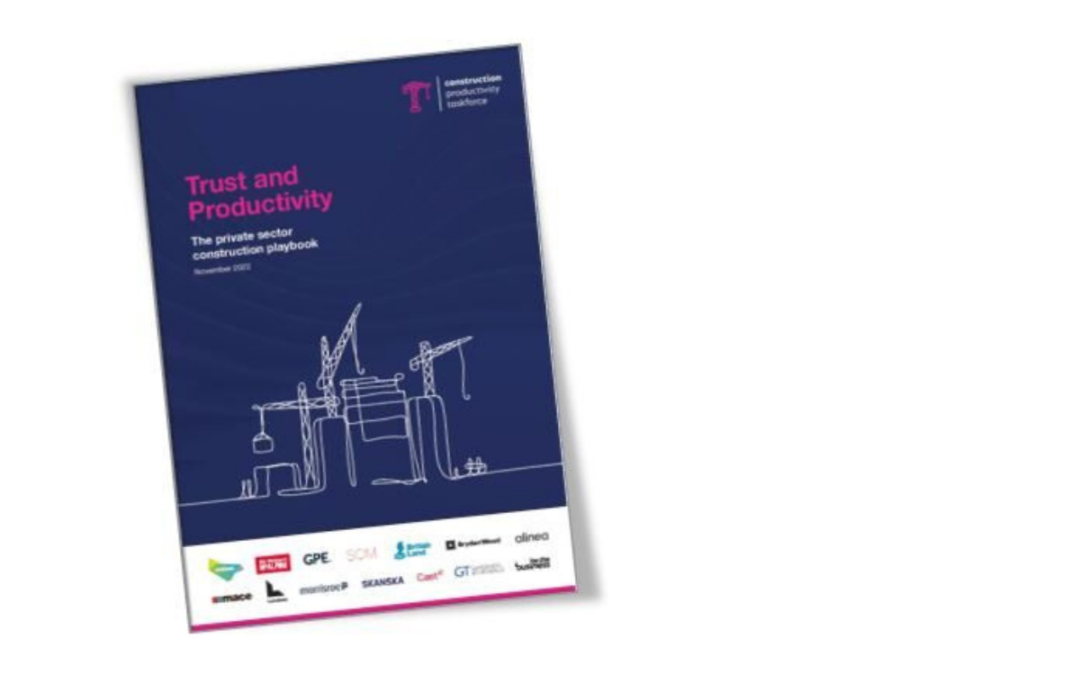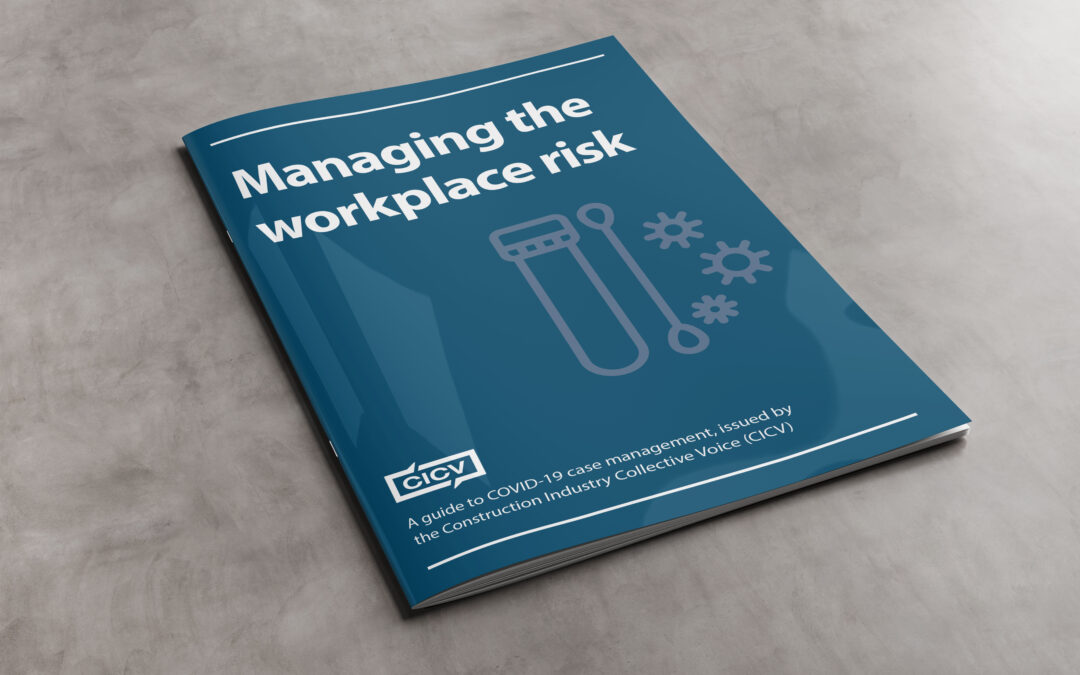
by Clair Mooney | 25 Nov, 2022 | Contractual and Legal, Lens Blog, Main News Feed
FIS Consultant Len Bunton looks at the recently released report published by Kings College London – 2022 Construction Adjudication in the United Kingdom: Tracing trends and guiding reform – which provides a good snapshot of current trends.
These monthly Blogs are designed to help FIS Members avoid common traps and build on our focus on collective experience. They share ideas about improving the commercial management of your contracts. In other words, instilling best practice into the way FIS members run and manage their business. What I have endeavored to suggest is ways to ensure you get paid on time, and what you are due.

by Clair Mooney | 24 Nov, 2022 | Main News Feed
Independent Fire Training Ltd has taken the next steps as part of their competency framework to further develop three of their existing courses into formal Ofqual regulated qualifications and are excited to introduce the new courses and qualification delivery from January 2023. All candidates sitting these courses and passing the theory and practical assessments will receive a formal qualification, the first of their types within the industry!
FIS has partnered with Independent Fire Training to offer all members a 10% discount on these new qualifications for courses purchased before 1 January 2023.
- Level 3 Award in the Inspection and Testing of Fire Stopping Installations
- Level 3 Award in the Inspection and Testing of Fire-Rated Ductwork and Damper Installations
- Level 3 Award in the Inspection and Testing of Fire-Rated Steel Intumescent Coating Installations
There are course dates scheduled for 2023. If yor are interested in booking, contact Independent Fire Training on 01522 904189 Opt1, email info@thefiretraining.co.uk or take a look at the website www.thefiretraining.co.uk
With the implementation of the Building Safety Act 2022 and the supporting legislation upcoming, there has never been more of a focus on the competency of those working in fire safety roles and responsible positions within the industry. In line with this, the decision was made to further improve these courses and have them regulated as qualifications, to support the recognition of competency requirements within the industry.

by Clair Mooney | 24 Nov, 2022 | Skills
There are currently three employer vacancies for members of the FIS Skills Board. The role involves contributing information that will direct FIS in the support needed for the finishes and interiors sector to ensure a competent and safe workforce.
We are looking for employer representatives from installing organisations that can join discussion on the skills needed by the sector so that we can prioritise activities and focus on the areas of greatest concern.
The commitment is four, two-to-three hour meetings per year where we explain the information FIS has and ask for your input. For more information, a copy of the Terms of Reference or an informal chat please contact George Swann on 07553 874383 or email georgeswann@thefis.org or Marie Flinter on 07799 903103 or email marieflinter@thefis.org

by Clair Mooney | 24 Nov, 2022 | Main News Feed, Material Shortages
Construction Product Availability: 23 November 2022
Statement from John Newcomb, CEO of the Builders Merchants Federation and Peter Caplehorn, CEO of the Construction Products Association, co-chairs of the Construction Leadership Council’s Product Availability working group
Product supply continues to improve, with the availability of building materials and products overall now at its best since pre-pandemic levels last seen at the end of 2019.
The restricted supply of semi-conductors, however, continues to challenge manufacturers of electro-technical products and gas boilers, though stock volumes are recovering. With current demand in the UK still outstripping supply, coupled with ongoing capacity and logistics issues in Asia, extended delivery times are likely to remain until the middle of 2023 and inflationary pressures will persist for these products.
There is a plentiful supply of timber in the UK and prices have reduced for popular groups such as CLS; however, log prices in Europe and North America are still strong and production is being reduced to reflect demand in the UK and Europe This could lead to gaps in the supply chain if demand rises suddenly but should not be a major issue if demand continues at current levels.
As mentioned in previous statements, birch plywood – currently a sanctioned good from Russia – is in short supply and some sectors will need to look at alternatives. Birch plywood can be legally sourced from Finland and Latvia but users should request full due diligence. Any imports of birch or birch furniture products from China and Vietnam will be manufactured from wood from Russia, which cannot be legally sold in the UK.
Inflationary pressures rather than availability present the main challenges for energy intensive products such as glass, concrete, cement, PIR, plasterboard and bricks. A warm autumn has helped reduce demand for gas but going into colder winter months prices may rise again. It is also unclear what financial relief from government will be available to energy intensive manufacturers in the spring when the current scheme is due to finish.
In his Autumn Statement, the Chancellor of the Exchequer announced a package of tax rises and spending cuts intended to stabilise the economy and lay the foundation for growth. Nonetheless, the near-term outlook will be challenging. While large-scale infrastructure projects will continue and larger housebuilders are currently maintaining volumes, we are already seeing a slight decline in starts by smaller housebuilders and a steady erosion of work in the home improvement sector as homebuyers and customers feel the pressure of rising living costs and interest rates.
We are also seeing a sustained, high level of construction firm insolvencies, particularly amongst SME builders and specialist contractors. This is in part the result of firms that became vulnerable during the pandemic now being wound up due to pandemic support being withdrawn. Other insolvencies are linked to economic uncertainty and the difficulty of reconciling fixed priced contracts with price inflation and reduced cash flow. Collaborative risk sharing will be key to preserving industry resilience and capacity moving forward.
For all the work FIS is doing around inflation and availability, including recommended contractual terms click here

by Clair Mooney | 22 Nov, 2022 | Skills
FIS and Worshipful Company of Plaisterers have announced the winners of the new sector Training Awards at its gala lunch held at Plaisterers’ Hall in London today.
In front of a packed audience at Plaisterers’ Hall, the winners of the 2022 Training Awards were announced and presented by Alderman Sir Charles Bowman of the Lord Mayors Office. The Awards are a collaboration between FIS and The Worshipful Company of Plaisterers to recognise outstanding apprentices and students, and individuals and organisations that have made a lasting contribution to training and development in plastering and interior trades.
Stephen Gilbert, the Master of the Worshipful Company of Plaisterers, said “The Company is absolutely delighted to once again host these prestigious awards in our magnificent Hall. This year, in an exciting move forward, we are very pleased to have teamed up with FIS to recognise the achievements of many within plastering and finishes and interiors sector”.
Commenting on the awards, FIS Immediate Past President Helen Tapper and Member of The Worshipful Company of Plaisterers Industry Committee said: “We are delighted to recognise and reward the outstanding talent, both in students themselves but also training providers and the mentors that work so hard to help the students forge hugely successful and rewarding careers.”
The 2022 award winners are:
Student of the Year – Plastering
Winner – Natasha Williams
Runners up – Rebecca Street and Jason Ssebbata
Student of the Year – Interior Systems
Winner – Anna Bell
Runners up – Ignas Kurasavos and Tommy Norton
Apprentice of the Year – Plastering
Winner – Johnathan Donaldson
Runners up – Thomas Devine and Lenny Miller
Apprentice of the Year – Interior Systems
Winner – George Batchelor
Runners up – Archie Downham and Ewen MacIntyre
British Gypsum Trophy
Now Get Qualified
Saint Gobain Formula Trophy
BCS Plaster Moulding
Colleges and Independent Training Providers (large)
Winner – NPTC College
Runner up – Leeds College of Building
Colleges and Independent Training Providers (small)
Winner – Craven College
Runner up – Barking and Dagenham College
FIS Member Training Programme
Errigal Contracts
Mentor Award
Rikki Wild – Measom Dryline
Lifetime Achievement Award
Matty McLeish – Tutor, Carlisle College
The awards and event were supported by sponsors Formula, British Gypsum, Go Interiors, Plaisterers Charity, CITB and STEPs.

by Clair Mooney | 18 Nov, 2022 | Main News Feed
To celebrate the World Cup, FIS hosted its own Fit Out World Cup Tournament for members and the wider community earlier this month at Sutton Coldfield Town Football Club. The event raised a fantastic £1,200 for the Lighthouse Club, a Construction Industry Charity that provides emotional, physical and financial wellbeing support to construction workers and their families.
Eight teams took part in the competition, battling it out in seven, 10-minute matches to produce the top two teams. Midlands Mafia (DCL) and CGR (CG Reynolds) went through to the final game, with CGR holding on to their early goal and winning 1-0.
A huge thanks to everyone that took part, and congratulations to CGR on lifting the Fit Out World Cup! You can see more pictures of the day over on our Facebook page


by Clair Mooney | 18 Nov, 2022 | Market data
Chancellor Jeremy Hunt highlighted ‘stability, growth and public services’ as the three main priorities of his Autumn Statement 2022. For construction product manufacturers, as well as the wider construction industry, the announcements made under the ‘growth’ priority will perhaps be most pertinent.
While the Chancellor announced that the UK economy is now in recession, his aim was to regain credibility following the previous Chancellor’s ‘Mini-Budget’ – to calm markets, tackle inflation, and bring down interest rates through a mixture of tax increases and longer-term public spending cuts. His fiscal position will be crucial to our overall economic outlook, but the big announcements that are likely to directly impact construction looking ahead fell under his announcements for ‘Energy, Infrastructure and Innovation’.
Key announcements include:
- New funding for a further £6.6bn for retrofitting buildings starting from 2025, aimed at reducing energy consumption from buildings and industry by 15% by 2030
- Launch of a new Energy Efficiency Taskforce
- A commitment to local infrastructure projects by matching Round One levels of funding in Round Two of the Levelling Up Fund
- A commitment to key national infrastructure projects including HS2 to Manchester, Northern Powerhouse Rail and East-West Rail as well as gigabit broadband rollout, and a feasibility study of A75 to go ahead with no cuts from capital budgets for the next two years
- Proceeding with a new nuclear power plant at Sizewell C, subject to final approvals
- The stamp duty cut announced in the previous Mini Budget won’t be indefinite and will end on 31 March 2025
Commenting on the Autumn Statement, CPA Economics Director Professor Noble Francis, said: “While the additional funding for energy efficiency from 2025 is welcome news, this funding is for further years after the current £6.6 billion finishes and clearly delivery in 2030 still signifies a longer-term goal for Government rather than a quick win. The detail of delivery for energy efficiency is crucial given previous flops in Government policy, and the CPA will closely follow further details as they emerge. Retrofitting our existing housing stock is crucial both for growth in the sector and to meet our net zero targets.
The commitment to infrastructure projects at both a local and national level will be welcome news to the industry, given some calls to reduce HS2 to Birmingham to help avoid tax increases. However, the announcement that funding for infrastructure would be “maintained in cash terms” in times of double-digit construction cost inflation means that we will see less activity down on the ground, particularly for financially constrained councils. Levelling Up through investment in infrastructure is a crucial way in which the construction industry can support wider economic growth, as well as its own, so it is vital that it is fully funded.
For housing, the stamp duty cut is likely to have only a marginal impact given the greater issue of interest rate rises and negative housing market sentiment. As a result, substantially more will be needed to stimulate both housebuilding over the coming years.”

by Clair Mooney | 17 Nov, 2022 | Technical
In response to queries highlighted at the “getting it right” seminar earlier this year, and with the assistance of our members we have drafted a short technical note to help raise awareness of the restrictions on minimum nib sizes between and around fire rated doorset openings.
This is designed to assist where perceptions of an industry “rule of thumb” can mislead some to believe that these types of limitations simply represent best practice, when in fact they are often a function of much stricter rules.

by Clair Mooney | 17 Nov, 2022 | Sustainability
SMEs can get grants from the Office for Zero Emission Vehicles to install electric vehicle charging infrastructure in their commercial car parks.
Eligible businesses can claim £350 for each chargepoint socket installed and £500 per parking space enabled with supporting infrastructure, up to a maximum of £15,000 per car park.

by Clair Mooney | 17 Nov, 2022 | Health and Safety
Build UK member IPAF has issued guidance on the ‘catapult’ or whiplash effect which can occur when using mobile elevating work platforms (MEWPs) and result in occupants or materials being ejected from the MEWP. Ensuing work at height is properly planned with adequate control measures can prevent serious or fatal injury.

by Clair Mooney | 17 Nov, 2022 | Technical
A new collaborative forum, The Passive Fire Knowledge Group (PFKG), has been launched to drive culture change through the design and construction process to improve fire safety in buildings.
The Passive Fire Knowledge Group (PFKG) brings together Tier 1 contractors, specialist installers and relevant trade associations to promote passive fire protection guidance and so improve the delivery of well designed, specified and installed passive fire protection. Tier 1 contractors comprise the largest stakeholder group and have the influence to drive forward the necessary culture change.
Commenting Will Pitt (Laing O’Rourke) of Passive Fire Knowledge Group (PFKG) said:
Tier 1 contractors are fundamental to managing the transition from design into the finished building and as such need to understand the procedures, systems and products involved. It is important that passive fire protection is adequately considered at planning and early design stages to ensure buildings are designed and constructed in accordance with relevant regulations. The PFKG aims to resolve the complex passive fire protection design challenges to ensure the construction industry delivers safe buildings.
Joe Cilia, (FIS Technical Director) and joint Chair added:
Trade Associations such as Finishes and Interiors Sector (FIS) and the Association for Specialist Fire Protection (ASFP) are able to bring specialist knowledge from within their technical teams and their wider membership through a collaborative approach to support this group meet its aims.
The PFKG will initially focus on education, process and testing issues related to the design and specification of passive fire protection for compartmentation, with initial focus on service penetration sealing and compatibility with fire resisting partitions (firewalls).
Other issues the forum will consider include: the appropriate application of fire test data to real life installations, inspection and recording of installed works during construction, and the education requirements of those designing, procuring and installing passive fire protection.
To find out more information about the Passive Fire Knowledge Group (PFKG) visit

by Clair Mooney | 16 Nov, 2022 | Main News Feed
A group of businesses within the construction sector have joined forces to produce a landmark publication aimed at combatting low productivity in the industry.
The goal is to promote trust and collaboration in a highly fragmented industry that can lack transparency. This in turn will help the industry reduce waste, address the skills shortage, and reduce the impact of low margins and investment in UK construction.
The need for action is clear: UK construction productivity growth fell by an average of -0.6% each year between 1997 and 2019 according to Oxford Economics. Over the same period, the productivity of the whole UK economy rose by 2.8%, while the productivity of manufacturing grew by 3.9%.
In real terms, this means that a larger workforce is now required to match historical output, making construction increasingly expensive and leading to a downward spiral of low margins and low investment. Operating under such conditions makes innovation more challenging.
The playbook aims to tackle these problems by encouraging clients, their construction teams and suppliers to work in a more collaborative way to help boost productivity, quality and value. In doing so, they can improve the health, safety and wellbeing of the workforce, reduce carbon and positively impact both the performance and image of the industry.
‘Trust and Productivity: the private sector construction playbook’ has been produced by some of the UK’s leading developers, contractors, architects, engineers, professional services providers and suppliers, under the umbrella of the Construction Productivity Taskforce – a specialised cohort founded by productivity champions Be the Business. Their view is that increasing productivity is essential if we are to cope with increasing skills shortages, use resources more effectively and be able to invest in sustainable infrastructure that meets net zero carbon commitments.
Simon Gorski, Executive Sponsor of the Private Sector Construction Playbook Working Group, and Managing Director, Construction, Europe, Lendlease, said:
“This landmark publication sets out a more productive and sustainable way forward for our industry. Productivity in the UK private construction sector has long been an issue, and while progress has been made in trying to address this, our industry is still blighted by a lack of openness and transparency. I’d like to thank my colleagues across the industry whose leadership has been essential in developing this document. Alongside the Government’s Construction Playbook, I am pleased that the whole industry now has the opportunity to deliver better project and programme outcomes for clients across the private and public sector.”
‘Trust and Productivity’ draws on the experience and expertise of some of the most successful organisations in the UK’s construction sector to set out ten key drivers for success that should underpin any project, while also providing a guide for all points in the project life cycle, from concept through to aftercare. Those ten drivers are:
- Form effective partnerships: Teams not collaborating effectively, team members pulling in different directions, and too much risk unfairly loaded onto one of the parties to a contract creates tension and mistrust from the start. Defined goals need to be agreed at the outset. These should be embedded in a project charter, which sets out clearly the shared objectives, values and measures of success.
- Adopt portfolio and longer-term contracting: Historically, there has been a perception that partnering-based approaches do not deliver value and can stifle innovation. However, when applied in a transparent way, partnering can deliver value and drive innovation, while also providing consistency, improved quality and reduced risk. The business resilience of the supply chain is boosted by a longer-term pipeline of future work. This also encourages investment in innovation and the workforce. In return, clients benefit from improved delivery.
- Take an outcome-based approach: This should resolve gaps between design intent and in-use performance, emphasising the need for improving whole-life value, performance measurement, sustainability, programme and cost certainty, and allow for innovative solutions from the supply chain.
- Embed digital information flows across the whole life of the asset: Increased use of digital information processes and technologies will reduce programme time and whole-life cost, and enable buildings to be delivered more cost effectively, while reducing risk and enabling the smart use of buildings during operation.
- Involve the supply chain early: Early engagement with manufacturers and specialist contractors improves the efficiency of the design and the design process through a better understanding of manufacturing capabilities, logistics constraints and on-site buildability.
- Benchmark objectives: By using key performance indicators across a range of criteria, teams can see where they are succeeding and where they are not. If the project is falling behind its benchmarks, action can be taken swiftly to get back on track. One of the aims of teams should be to measure productivity.
- Allocate risk fairly and appropriately: The allocation of risk needs to be decided by evaluating the project, using experience, expertise and knowledge. The party best placed to manage the risk should take the leadership role and should also encourage collaborative thinking among all parties.
- Pay fairly: Trust and collaborative partnerships can only be established if fair payment is in place. Best practice, as set out in the Construction Act 2011 amendment, should be adhered to at the very least, and embedded in all construction contracts, with any amendments taking into consideration supply chain implications and risk allocation.
- Assess the economic and financial standing of suppliers: Minimising the risk of failure in the supply chain is crucial for the efficient delivery of a project. The financial strength of all supply chain partners should be assessed during the selection process. Assessments should be transparent, objective and non-discriminatory.
- Promote innovation and continuous improvement: Innovation through using digital information processes and digital technology, adopting modern methods of construction and designing for manufacture and assembly can improve productivity, reduce waste and drive significant reductions in lifetime carbon emissions.
‘Trust and Productivity: the private sector construction playbook’ has received endorsements from industry bodies including the Construction Leadership Council and British Property Federation.
Anthony Impey MBE, CEO, Be the Business, said:
“I’m delighted to see the construction industry taking such positive steps to increase their productivity. The private sector construction playbook should act as the cornerstone of a more productive sector and provide inspiration to other industries to do the same.
“Placing collaboration at its core, this document provides clear guidance on how to drive higher productivity outcomes for the sector, key to sustainable growth within the industry and the UK economy as a whole.”
Nigel Webb, Chair of the Construction Productivity Taskforce, and Head of Development, British Land, said:
“By increasing productivity, the construction industry can play a vital role in driving economic growth, supporting the UK’s net zero ambitions and improving the economic health of the sector. This playbook seeks to identify ways to address some of the issues limiting construction productivity. I would encourage clients, contractors, designers and supply chain members to engage with the playbook and start to measure and identify ways to improve productivity.”

by Clair Mooney | 15 Nov, 2022 | Main News Feed
The Construction Leadership Council (CLC) in collaboration with NEC has today published joint guidance to industry on the use of retention clauses under NEC3 and NEC4 Engineering and Construct Contracts (ECC), and sub-contracts.
The publication explains how NEC contract suites deal with defective work and retentions, and to explain that a retention fund may not, in fact, be needed.
The contractual practice of retention payments is intended to provide security against defective work, and the insolvency of businesses in the construction supply chain. The principle is to secure performance and incentivise the elimination of defects in an industry where the quality of work remains inconsistent. However, they can create problems for businesses throughout the supply chain due to the late and non-payment of retentions or through upstream insolvency.
This work forms part of the CLC ambition of moving to zero retentions by 2025, through reducing or eliminating defective construction work and having a procurement and delivery model that recognises, incentivises and rewards consistent high-quality work.
Commenting on today’s publication, Steve Bratt, Chair of the CLC’s Business Models Workstream said:
“The long-term aim is to eliminate the need for retentions altogether. This guidance illustrates that often the need for retentions can be avoided through good contract management and selection of contractors with a good track record of quality work.”
“I would like to thank the NEC Board for their collaborative approach to working with CLC colleagues on this longstanding, contractual issue.”
Speaking on behalf of the finishes and interiors sector, FIS CEO, Iain McIlwee stated:
“This is welcome and definitely a step in the right direction. The retentions debate has raged for decades and progress has been slow at best, but the world is changing rapidly and we cannot let past procrastination dampen our ardour to deliver change. It is widely agreed now that retentions contribute towards many of the negative behaviours in the sector. The Retentions Roadmap outlines a voluntary phased approach to moving towards the objective of zero retentions by 2023, clearly this is unlikely now, but no later than 2025 has to remain as an achievable goal. If we want genuine transformation, we need to be bold. I would urge JCT, which tends to be the more common contract in our sector, to take similar steps in the immediate future.”
Peter Higgins, Chairman of the NEC4 Contract Board said:
“The construction industry has traditionally thought of a retention fund as a necessary and inevitable part of the cost of doing business, but NEC contracts took a different approach, treating retentions as an option to be used only if necessary. NEC is pleased to have worked with the Construction Leadership Council in preparing this guidance on the use of retentions under NEC contracts, and in particular highlighting when holding a retention fund creates an unnecessary expense for contracting parties.“
The guidance is available to download here.
A free webinar to support the new guidance and an opportunity to learn more is scheduled for Monday 16 January 2023 at 2pm.
To register initial interest, please contact info@necontract.com
Both CLC and NEC would like to thank all those that participated in the development of this guidance, in particular, Peter Higgins of PD Consult on behalf of NEC, and Andrew Croft of Beale & Company Solicitors LLP and Claire King of Fenwick Elliott LLP on behalf of CLC.

by Clair Mooney | 14 Nov, 2022 | Main News Feed
Businesses will be given an additional two years to apply new product safety marking, giving thousands of businesses the freedom to focus on growth, Business Secretary Grant Shapps has announced today (Monday 14 November).
The UK Conformity Assessed (UKCA) marking has been introduced as part of the UK’s own robust regulatory framework. It shows that products comply with our product safety regulations which are designed to protect consumers.
However, given the difficult economic conditions created by post-pandemic shifts in demand and supply, alongside Putin’s war in Ukraine and the associated high energy prices, the government does not want to burden business with the requirement to meet the original (31 December 2022) deadline.
The government will continue to recognise the CE marking for two years, therefore allowing businesses until 31 December 2024 to prepare for the UKCA marking. Businesses can also use the UKCA marking, giving them flexibility to choose which marking to apply.
Business Secretary Grant Shapps said:
The government is determined to remove barriers to businesses so they can get on with their top priorities, like providing quality customer service, enabling growth and supporting their staff.
This move will give businesses the breathing space and flexibility they need at this crucial time and ensure that our future system for product safety marking is fit for purpose, providing the highest standard for consumers without harming businesses.
To support manufacturers, the government is also reviewing the wider product safety framework, ensuring we minimise the burdens on business while keeping our system up to date with new innovative methods such as e-labelling.
As part of this, the government will make it easier than ever for businesses to apply product markings.
This package will give thousands of businesses, including electronics and lift manufacturers, additional time to focus on delivering growth and creating jobs, while giving them flexibility in how they meet their legal obligations.
It should be noted that construction products come under specific rules, which have not yet been amended.
The CLC has issued a statement regarding clarification on construction products and the need to ensure that businesses know what products can legally be placed on the market in the UK. You can read the full statement at https://www.constructionleadershipcouncil.co.uk/news/clc-statement-on-ukca-markings/
There will be different rules for medical devices, construction products, cableways, transportable pressure equipment, unmanned aircraft systems, rail products, and marine equipment. Government departments responsible for these sectors are making sector specific arrangements.
Commenting on the announcement FIS CEO, Iain McIlwee stated:
“This is without doubt a positive step. Whilst we await further updates to confirm that the change announced does extend to construction products, it would appear a more pragmatic Policy direction has been set and the desire and time to bring in the required legislation to change status of construction products carrying the CE Mark in time for the new year has dissipated.”

by Clair Mooney | 11 Nov, 2022 | Skills
Build UK has published a guide setting out the most common Routes of Entry in Construction for young people in England leaving school, including apprenticeships, traineeships, T Levels and degrees, and how they might suit different employers. Although the routes of entry into the industry can be complex and confusing, employers that understand them are well placed to offer opportunities and recruit their future workforce.
This helps deliver work under:
- The CLC’s Skills Plan (pg.10), Priority 2: Routes into Industry to ‘Improve the links between education and employers to support the pathways into and through apprenticeships, T Levels and employment’; and
- CITB’s Strategic Plan (pp.8), which states: “supporting and equipping employers and potential entrants with the information they need and making the routes into construction as simple as possible”
The guidance has been endorsed by CITB and the Department of Work & Pensions.
Commenting on the launch, FIS Skills and Training Lead George Swann stated:
This is a straight forward brief on what is primarily available in England, if you need more details or have any specific questions, contact me on 07553 874383 or email georgeswann@thefis.org

by Clair Mooney | 11 Nov, 2022 | Skills
Apprenticeships are the best way to enhance you workforce and the training is free to employers. FIS members are providing this training and have a number of vacancies for Dryliner apprentices and Ceilings and Partitions apprentices. These are primarily at Leeds College of Building, Bedford College and National Construction College East. In Wales FIS member Direct 2U Training are delivering the new Welsh apprenticeship framework for Drylining and Greenlight Safety and Training who are based in Plymouth. For more details please see the FIS Training Directory or call us on 0121 707 0077.

by Clair Mooney | 10 Nov, 2022 | Main News Feed
The HSE has commissioned an independent research agency, Kantar Public, to interview people working in private sector housing, including student accommodation providers, who will be responsible for compiling their organisation’s safety case and associated report.
The requirement to produce a safety case and a safety case report is a new way of working for people and organisations who manage high-rise buildings.
The HSE wants to understand your experience of doing this, the challenges you faced and your views on the information produced so far. This is a chance to shape the future guidance and make sure it works for everyone involved.
Participation is voluntary and will involve a 90-minute interview with Kantar’s researchers, followed by a 30-minute interview to comment directly on the guidance.
Kantar will offer an incentive of £150 as a thank you for your time. Your identity will not be disclosed to HSE, and it will not be possible for HSE to identify individual participants or organisations in the research outputs.
To register your interest, please email marios.zampetis@kantar.com by Friday 11 November.

by Clair Mooney | 10 Nov, 2022 | Main News Feed
The CICV has produced a new open source guidance document, which is now available to download on the CICV website. Aimed at employers, it gives advice on case management of COVID in the workplace.
FIS Chief Executive Iain McIlwee commented:
FIS is a member of CICV on behalf of our community and this advice is a great example of why. COVID hasn’t gone away, but as employers we still need to manage cases and wider risk – whilst framed for Scotland it is a great reference source for wherever you are in the UK.

by Clair Mooney | 9 Nov, 2022 | Main News Feed
To mark World Quality Week, at the FIS North West Regional Conference in Manchester today, FIS relaunched the FIS PPP Risk Register, a key tool in the FIS Product Process People (PPP) Quality framework.
The FIS PPP Risk Register gives people a structured framework to interrogate project risk based on a assessment of severity and probability of a risk occurring. The standard scoring system helps members to identify any unacceptable high risks and ensure management strategies are put in place to address. The tool also helps a management team to assign risk correctly and contains a range of links to additional tools and information that will help support specific risk management.
FIS CEO Iain McIlwee said: “A large part of our work centres on interrogating and helping members to manage day to day problems they may encounter, risks. This is a moving and evolving space. Our tool helps us to ensure that we are learning lessons and that members are alert to where problems may appear,
Risk is unescapable in any construction project, but at times we can feel so beset by risk that we become indifferent to it. It is vital that as an industry we get better at measuring, managing and mitigating. This simple tool is built on the premise that if you can’t measure it or didn’t think about it, you can’t manage it. It aims to help people to score risks. The underlying principle is that is that we can all learn from our own mistakes, but it is better learn together and avoid learning the hard way wherever possible.”
The FIS PPP Risk Register is available for members to download here
To find out more about World Quality Week, click here

by Clair Mooney | 8 Nov, 2022 | Building Safety Act, Drylining, Technical
FIS and the Tall Building Working Group (TBWG) have published a report which investigates the causes of noise emanating through the fabric of some tall buildings, identifies methods of remediation and provides guidance for affected buildings.
The Tall Building Working Group (TBWG) was formed in 2018 to address a global phenomenon where creaking can be heard in tall residential towers in high wind conditions.
The group was established under the umbrella of trade body Finishes and Interiors Sector (FIS) and set about bringing together the entire supply chain, namely developers, tier 1 contractors, manufacturers, architects, specialist drylining contractors and engineers who are involved in the specification and construction of buildings where noise issues have been reported.
The starting point was to investigate the root cause of this phenomenon and then look at how occurrence can be reduced or better managed in new towers by providing better guidance for architects, engineers, designers and developers.
The group engaged with individuals and organisations from across the globe and absorbed the findings of all available secondary research before embarking on a structured research programme of their own, funded by members of the TBWG.
Further research was carried out by structural engineers WSP to present, in a graphical format, the inter-storey differential movement in vertical and horizontal directions affecting partitions and other elements of fit out. This document explains to the project fit out designer how a high-rise tower reacts to external loads.
- External loads make building move: non-structural elements should be installed in such a way to allow for the movements freely.
- Any locked in movement will cause distress in the non-structural elements.
- Any frictional resistance to movements will cause noise.
The key to reducing the phenomenon occurring in future tall towers is sharing the information contained in the structural engineer’s movement and tolerance reports early with the system owners of the drylining, and providing movement joints to allow the elements of the internal fit out to move independently.
Manufacturers have been exploring different solutions and methods of mitigation. At this stage none have been able to completely eliminate the sound.
Commenting on the work, FIS CEO Iain McIlwee said:
“I think this is a first. I cannot think of a single time when the construction supply chain has attacked a problem in this way. Rather than battening down the risk hatches, reaching for the contract and starting the blame game, this was a genuine attempt to work together to understand and collaborate to solve it. This is a body of work all involved can be proud of, not just because it will help unravel some potentially complex issues or maybe help people sleep more soundly, but because it is an example of how we can collaborate and be better as an industry.”
The TBWG is planning to hold another conference to share the report outcomes with the delivery teams, meanwhile a summary report is available here.





















